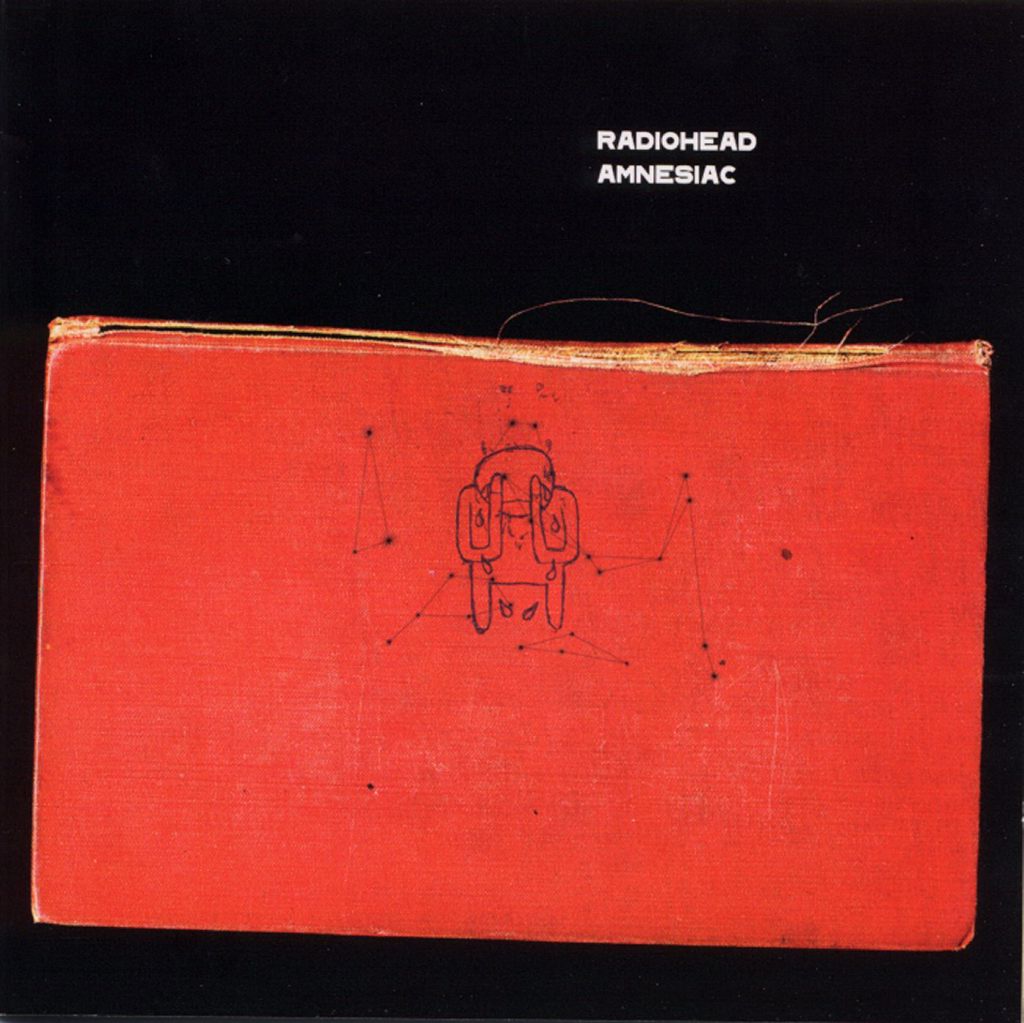In 2000, Radiohead released Kid A, an album which purposely dispensed with the guitar-laden soundscapes that had, up until that point, defined their alternative Brit rock sound. Instead, they boldly entered the world of electronic samples, loops and other curious bleeps modern technology had bequeathed. At first listen, it is an alien and strange experience. Upon further inspection, it’s an ingenious and sonically fitting followup to 1997’s OK Computer and it’s central theme of alienation resulting from modernity. The only element that seemed to carry over from their previous work was lead vocalist, Thom Yorke’s fragile yet compelling falsetto.
2001’s Amnesiac, could never quite hope to deliver the same shock and cultural impact as Kid A, and therefore has often been overshadowed and sometimes overlooked. Recorded in the same session, it’s not a stretch to imagine a parallel universe where Amnesiac was released as side 2 of a Kid A double album.
If Kid A can be regarded as an exquisitely polished stained-glass window, then Amnesiac is that same image, weathered and decayed. It is arguably even less accessible than the already challenging Kid A, however this doesn’t necessarily mean it is inferior.
Bizarre, bewildering and deeply introspective, the listener is taken on a journey through a soundscape which might conjure images of Dante’s journey, or even a post-apocalyptic Alice in Wonderland. It’s lyrical motifs poignantly explore the cyclical nature of all things, birth, death and rebirth; of life, of matter, and of fundamental ideas about the world and ourselves.
The title, Amnesiac, announces to the listener Yorke’s desire to forget destructive past experiences and move forward – and is also a cynical commentary on those who forget to keep their (election) promises.
The album opens with the unassuming percussive hits of Packt Like Sardines In a Crushed Tin Box, quickly layering subtle and infectious beats under Yorke’s admonishment that he’s not to blame for the way things have turned out. “I’m a reasonable man, get off my case.” he repeats. However, this track can quite easily be viewed as a prelude to the real beginning of the album, the second track, Pyramid Song.
Sombre and reflective, the soft piano gently lulls the listener into a ghostly dream, where lyrical images inspired by the Egyptian underworld masterfully weave around the noble yet eerie-sounding ondes Martenot (an early theremin-type instrument). Here we see Yorke introduce his meanderings on the inevitable slow-decay of time and the nature of life and death. A high point of the album and arguably it’s most iconic.
Pulk/Pull Revolving Doors is sonically harsh, chaotic and designed to challenge the listener’s preconceived notion of what music should conform too. Imagine – as the title suggests – an endless flow of people entering and exiting a set of revolving doors and it is indeed a fitting soundtrack. There is no singing, only spoken word, modified with auto-tune to sound metallic and nonhuman – reminiscent of Kid A’s self-titled second track. Again Yorke explores the idea of the cycle, this time in reference to modern society and the (futile) ideals we are told we should be chasing, “We are revolving doors,” he perhaps rightly observes.
Moving into You And Whose Army?, a 1940s inspired lullaby that it is hardly meant to foster pleasant dreams for the listener, Yorke muses on the grandiose machinations of certain deluded individuals then in power. “Come on, come on, Holy Roman empire.“ he sneers.
I Might Be Wrong is a personal favourite of mine. A layering of sampled guitar riffs, intricate bass lines and semi-industrial rhythms combine to produce a robotic, almost assembly-line feel to the song. It’s mechanical sterility is particularly striking in contrast with the humanity found in Yorke’s request for forgiveness and absolution.
The most traditionally Radiohead-sounding track on the album, Knives Out, bristles with shimmering Johnny Marr (the Smiths) inspired guitars. It is almost like seeing a familiar face in a room full of strangers.
Morning Bell/Amnesiac is a less sane re-imagining of Kid A’s Morning Bell. It again explores the idea of the cycle, but this time in relation to soul-destroying monotony. One only needs to imagine a parent single-handedly running a household in the doldrums of suburbia, slowly succumbing to the maddening realization that everyday will be exactly the same, in perpetuity. “Release me. Release me.” is the plea. The blissfully innocent sounding xylophone throughout serves to mock the futility of the situation. Perhaps a fitting thematic sequel to Amnesiac’s opening track, where life was never meant to end up like this?
Dollars & Cents’ gentle percussiveness washed in reverb is reminiscent of the superbly beautiful Reckoner from 2007‘s In Rainbows. Colin Greenwood conjures the appropriate bass line and stays with it throughout. “We are the dollars and cents, the pounds and pence.. We’re gonna crack your little souls.” A gibe at humanity’s enslavement to greed and the money lenders we all rely on maybe?
Hunting Bears, an instrumental utilizing only a distorted guitar and synth, is a dynamic juxtaposition in tone between harsh and soothing, yin and yang. It is actually a welcome pause before the emotionally taxing – and my other personal favourite – Like Spinning Plates gently kicks in.
Enchanting, swirling, psychedelic – and almost psychotic – a moment of sheer brilliance. This is Radiohead at what is arguably their most experimental and – and for me – moving. Yorke’s melody – accidentally discovered after hearing another Radiohead recording played backwards – is ethereal and ghostly, almost as if he is somehow singing from beyond the grave. He is clearly deeply shocked by the actions of those in government. “While you make pretty speeches, I’m being cut to shreds.” he laments.
The closing track of the album, Life In A Glasshouse, deliberately evokes the discord of a New Orleans jazz funeral. Yorke explores society’s twisted fixation with scandal, and how often we forget our own dark secrets buried away. No one is perfect. “Once again we are hungry for a lynching. That’s a strange mistake to make. You should turn the other cheek, living in a glasshouse.”
There was a time a few years ago when I had Amnesiac on heavy rotation, often falling asleep to it’s eclectic yet alluring soundscapes. One day I received some tragic news regarding a close family member and for the longest time I could no longer bring myself to listen to it for fear of evoking painful memories by association.
It was only a few months ago the album came up in discussion and I decided I would try and listen to it again – although I was expecting the worst. What I found was that the crushing sadness I had placed upon it had dissipated. Like teardrops on a canvas, mingling with the paint before evaporating, my own struggle to deal with my loss had come full circle. I felt reborn, with a renewed connection to the album. Amnesiac’s exploration of the cycle; of birth, death and rebirth could not have been any more poignant for this listener.
Review by Luke Mckenzie
Highlights: Pyramid Song, Packt Like Sardines In a Crushed Tin Box, Like Spinning Plates


